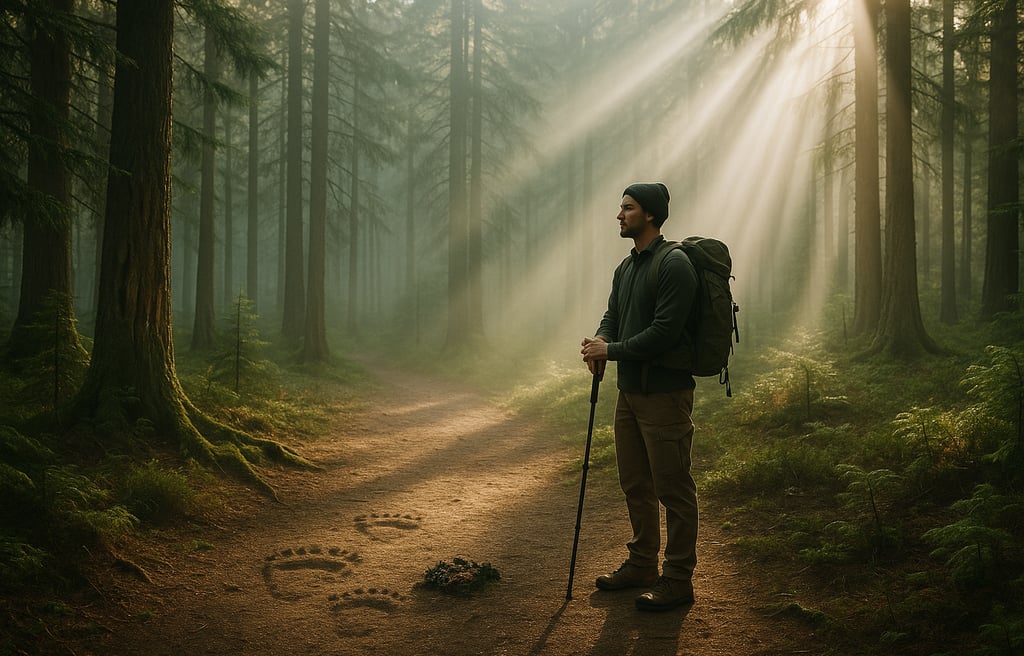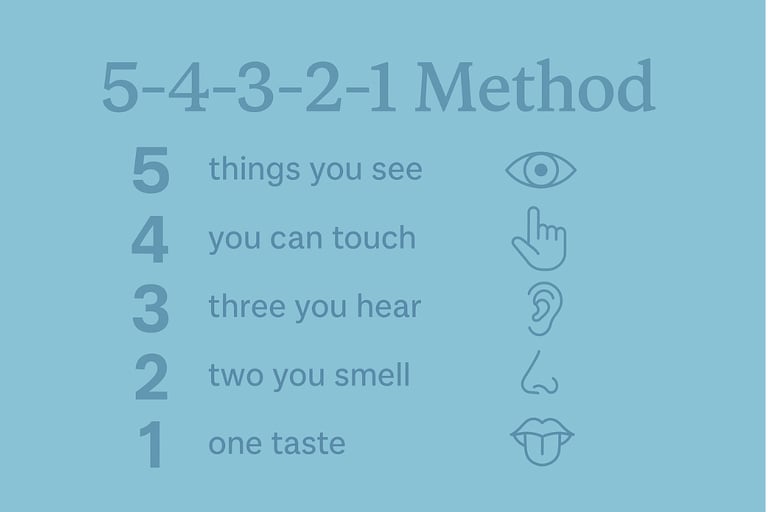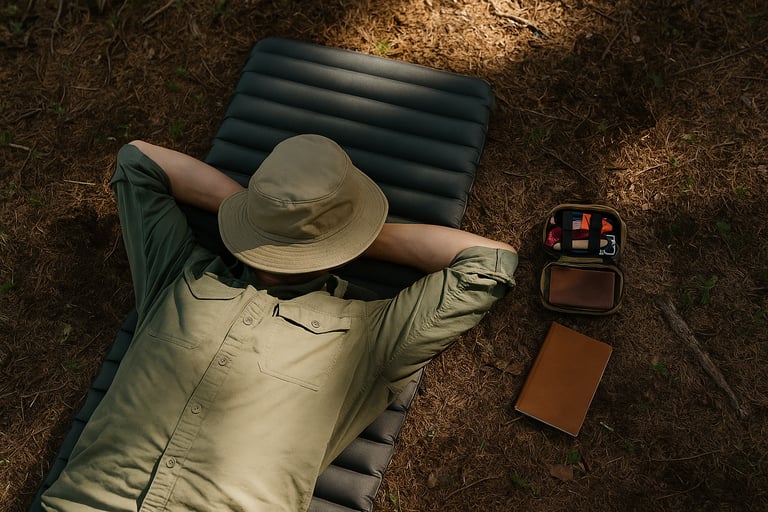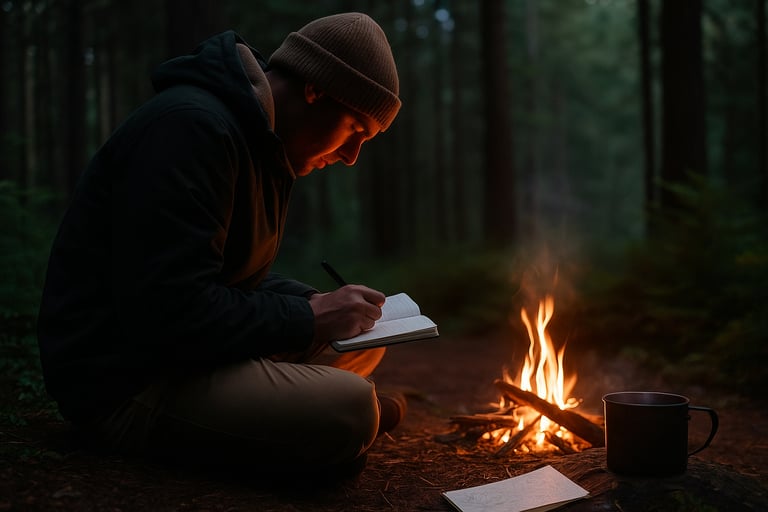Solo Survival: Mental Strategies for Staying Strong When You’re Alone in the Wild
Mastering the mental side of solo survival is just as critical as physical preparation. Learn how to stay calm, focused, and resilient when you're alone in the wild, using proven psychological strategies for isolation, fear, and decision-making.


Solo Survival: Mental Strategies for Staying Strong When You’re Alone in the Wild
Why Mental Strength Is Your Greatest Solo Survival Tool
Being alone in the wilderness is a true test of self-reliance. Without companions to talk to, solve problems with, or simply share the experience, your own mind becomes your biggest asset — or your greatest challenge. The physical skills of survival (like building a shelter or finding water) are essential, but your mindset can determine whether you stay clear-headed or spiral into panic.
Solo survival demands strong mental resilience, a calm presence, and the ability to manage fear, boredom, and stress. This article will walk you through practical, beginner-friendly strategies to help you stay sharp, confident, and emotionally grounded when you’re facing the wild on your own.
Understanding the Psychological Challenges of Being Alone in the Wilderness
Solitude in nature sounds peaceful, but in a survival scenario, it can quickly feel isolating and overwhelming. Humans are social creatures, and going for long stretches without interaction can stir up intense feelings of loneliness, fear, or even paranoia. Add in the uncertainty of your surroundings, physical discomfort, or limited food and water, and the mental pressure multiplies. Recognizing these psychological stressors early, like racing thoughts, irritability, or difficulty concentrating, can help you step in with the right tools before they spiral.
If you’re already starting to feel mentally overloaded, Mental Fatigue in Survival Scenarios offers tools to catch and recover from burnout before it affects your safety.
Build Mental Routines to Stay Grounded
One of the most powerful ways to stay centered when you're alone is by establishing mental routines. These can be as simple as starting each morning with a few deep breaths and a mental check-in: What do you need to do today? What’s the weather like? How are you feeling physically and emotionally? Creating structure, even in the smallest way, gives your mind a sense of control, which helps combat anxiety and decision fatigue. Other helpful routines include checking your gear, preparing water, sitting by a nice calming fire, or journaling your thoughts each evening.
Practice Mindfulness to Manage Fear and Uncertainty
Fear is a natural survival response, but unchecked, it can lead to poor decisions. Mindfulness techniques like focused breathing, grounding exercises (like the 5-4-3-2-1 method), or simply noticing the sounds and textures around you can bring your attention back to the present. When fear creeps in, it helps to pause and scan your surroundings: Is there a real threat, or is your brain imagining one? Mindful awareness builds emotional distance between you and your fear, giving you space to think clearly.
For more simple techniques to stay centered outdoors, check out Mindfulness in Nature: How to Stay Present and Focused in the Wilderness.
Talk to Yourself—Yes, Really
Positive self-talk may feel awkward, but it works. Saying things like “You’ve got this,” “You’re doing fine,” or “Let’s take it one step at a time” helps regulate your nervous system and keeps you focused. When you’re solo, this internal dialogue becomes your source of motivation and clarity. It replaces the comfort and reassurance you'd get from another person. Over time, this becomes an inner strength you can rely on in future survival scenarios.
Prepare for Boredom and Mental Fatigue
Even in high-stress survival situations, there will be stretches of downtime that feel endless. Without distraction, your mind can loop on fears or regrets. To fight this, pack lightweight “mental gear” like a tiny notebook, a short book, or even a few songs or guided meditations saved to your phone (with a solar charger, if possible).
Mental fatigue is real, especially when your brain is constantly assessing danger. Taking short breaks, shifting focus to something comforting, or even giving yourself permission to rest are all vital parts of staying mentally healthy in the wild.
Final Thought: Embrace the Quiet
Solo survival doesn’t just test your physical preparedness, it invites you into a rare kind of solitude. While challenging, this kind of experience can also build lasting confidence, clarity, and appreciation for your own resilience. You’ll come out of it knowing not only how to survive, but how strong your mind truly is when it counts most.






© 2025. All rights reserved About | Privacy Policy | Terms and Conditions | Affiliate Disclosure | Disclaimer


